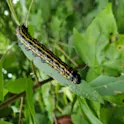
Health
08 Apr 2024
Pig hearts kept alive outside the body for more than 24 hours offers hope for many humans needing a transplant
A major bottleneck on human heart transplantation are limits to storage of the donor heart outside the body, which is currently only routinely possible for six hours. Scientists have now tested new preservation methods, to keep pig hearts routinely alive outside the body for at least 24 hours. If successfully extended to humans, this would constitute a significant improvement to clinical practice.













